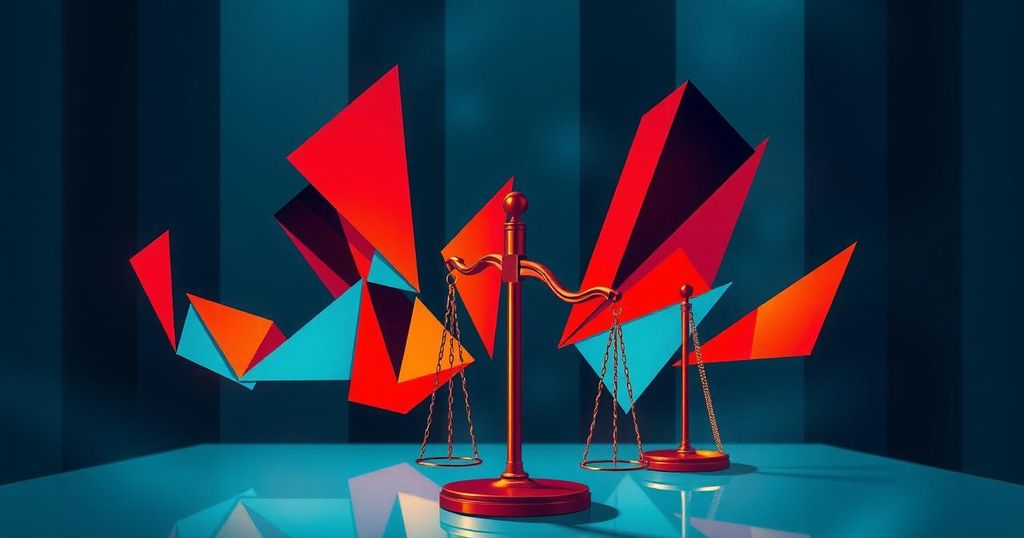Tunisia’s Opposition Figures Face Controversial Mass Trial
The mass trial of around 40 prominent opposition figures in Tunisia has begun, marked by accusations of politically motivated charges. The defendants, including well-known activists and politicians, face serious allegations that could result in severe penalties. The trial’s legitimacy is being questioned by defence lawyers and human rights advocates, further highlighting issues related to civil liberties under President Kais Saied’s government.
The mass trial of several prominent opposition figures in Tunisia commenced recently, stirring significant controversy and claims of political motivation. Approximately 40 high-profile defendants, including activists, politicians, lawyers, and media personalities, face severe accusations, such as “plotting against state security” and “affiliation with a terrorist group.” Legal representatives argue that these charges may result in substantial penalties, including the potential for capital punishment.
Relatives of the accused gathered in the courtroom, chanting for freedom and alleging that the judiciary was acting according to political directives. Defence lawyer Abdelaziz Essid condemned the trial’s legitimacy, calling it an “absurdity,” while Human Rights Watch criticized the proceedings as a “mockery of a trial” due to what they termed “abusive charges.” The court session was adjourned to allow for the defence team’s requests to be considered, which included demands for the physical attendance of detained defendants and their release from custody.
High-profile names among the accused include politician Jawhar Ben Mbarek, Ennahdha leader Abdelhamid Jelassi, and National Salvation Front co-founder Issam Chebbi. Additional figures charged include activists and a former parliament member currently in France. Defence lawyer Dalila Msaddek expressed concerns that sentences could have already been predetermined, highlighting the presumption of innocence being eroded.
The Tunisian authorities arrested several defendants in February 2023, with President Kais Saied labeling them as “terrorists,” further polarizing the political climate. Some defendants currently remain free pending trial, while others have left the country. Since Saied’s 2021 power grab, numerous rights organizations have expressed alarm over the deterioration of civil liberties and democratic norms in Tunisia.
Defence attorneys have also raised issues regarding limited access to case documentation, with lawyer Samir Dilou accusing the proceedings of being a government orchestrated plot aimed at suppressing opposition. National Salvation Front head Ahmed Nejib Chebbi decried the trial’s unjust nature while calling attention to the peaceful reputations of the defendants.
In related developments, other critics of President Saied have faced detentions, and the leader of the Ennahdha party, Rached Ghannouchi, was sentenced to 22 years in prison under national security laws. The UN has expressed concerns over the pattern of arrests and arbitrary detentions, urging authorities to cease these actions. In turn, the Tunisian foreign ministry responded dismissively to the UN’s concerns, affirming the nation’s capacity to manage its internal affairs.
In conclusion, the mass trial of opposition figures in Tunisia has drawn widespread criticism, with allegations of political motivation and procedural unfairness. Lawyers and family members of the defendants decry the systemic erosion of civil rights under President Kais Saied’s regime. The contentious nature of the trial underscores growing concerns regarding judicial integrity and government accountability in a country that once represented the hope of democratic progress in the region.
Original Source: www.al-monitor.com




Post Comment